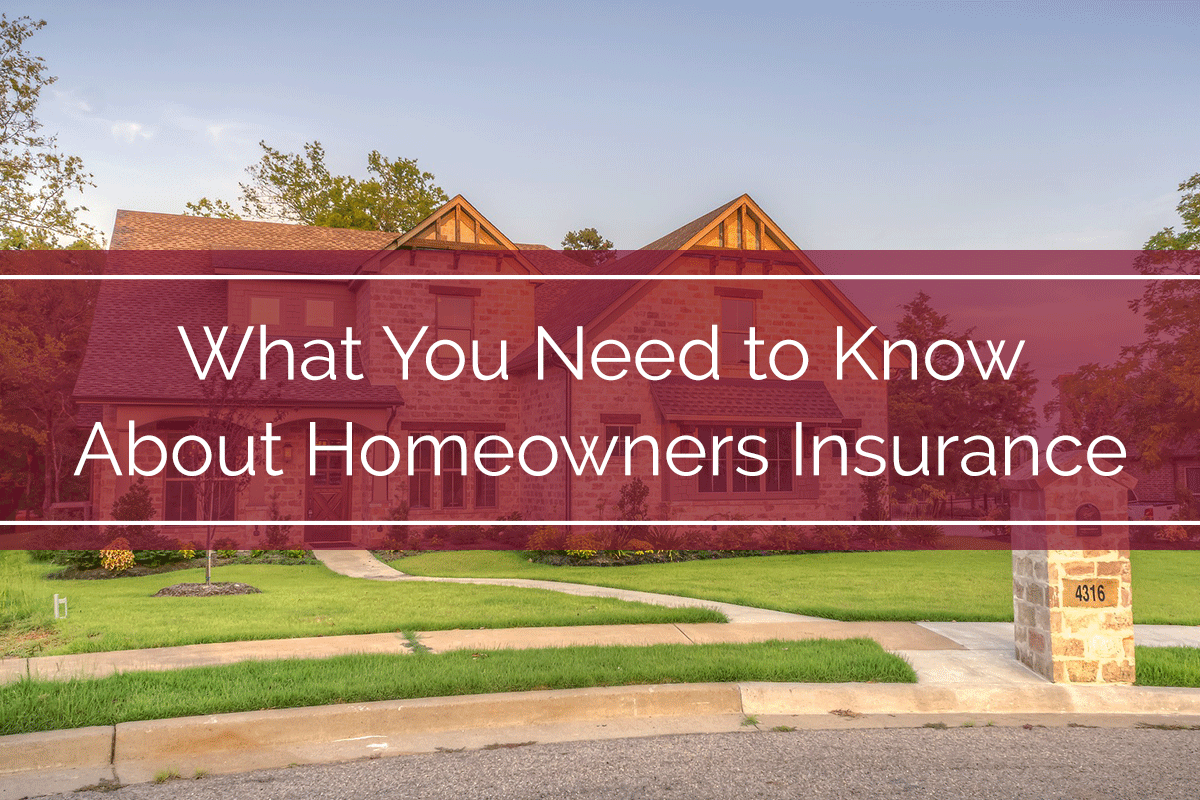
22 Aug What You Need to Know About Homeowners Insurance
After purchasing a home, one of the few things that may clutter your mind is the thought of homeowners insurance. It can seem overwhelming, but overall it could be one of the smartest decisions you make to protect your home. Before making a decision, here are a few key steps to guide you:
1. What is homeowners insurance?
Homeowners insurance is a form of property that’s designed to protect one’s home against damages done to the house itself, or assets inside the home.
2. Deciding how much coverage you need.
First, you have to take into consideration of all the valuables you have inside of your home. Being in a comfortable position, you tend to not recognize how much all of your valuables are worth. The better the coverage, the less you’ll have to pay out of your pocket if something were to occur. You should also avoid paying for more coverage than you need.There are seven forms of homeowners insurance that have become standardized in the U.S. They range from HO-1 through HO-8 while offers vary due to the various levels of protection depending on the needs of the homeowner.
HO-2: Policy that covers the 16 perils that are named in the policy.
HO-3: Broader policy that protects against all perils except specifically excluded by the policy.
HO-5: Premium policy that typically protects newer, well-maintained homes; it covers against all perils except those specifically excluded by the policy.
HO-6: Insurance for co-ops/condominiums, which includes personal property coverage, liability coverage and coverage of improvements to the owner’s unit. Insurance for the actual structure usually comes through the association.
HO-7: Similar to an HO-3 policy, but for mobile homes.
HO-8: Policy specifically for older homes, with similar coverage to an HO-2 policy. However, it only covers actual cash value.
3. Always compare.
Since you’re not required to purchase insurance from the company your lender works with or recommends, you should always compare and shop around first. Start off by comparing coverage, price, and customer reviews. After all, you also may be required to purchase additional insurance due to a standard policy having exclusions including earth movements (landslides, earthquakes, sinkholes), power failure, war, nuclear hazard, government action, faulty zoning, bad repair or workmanship, defective maintenance, and flooding.
Be sure you’ve grasped the concept of having homeowner insurance and the twists and turns that may come along with it. Always ask questions to ensure that you’re purchasing the right amount of coverage to protect you and your home!





No Comments